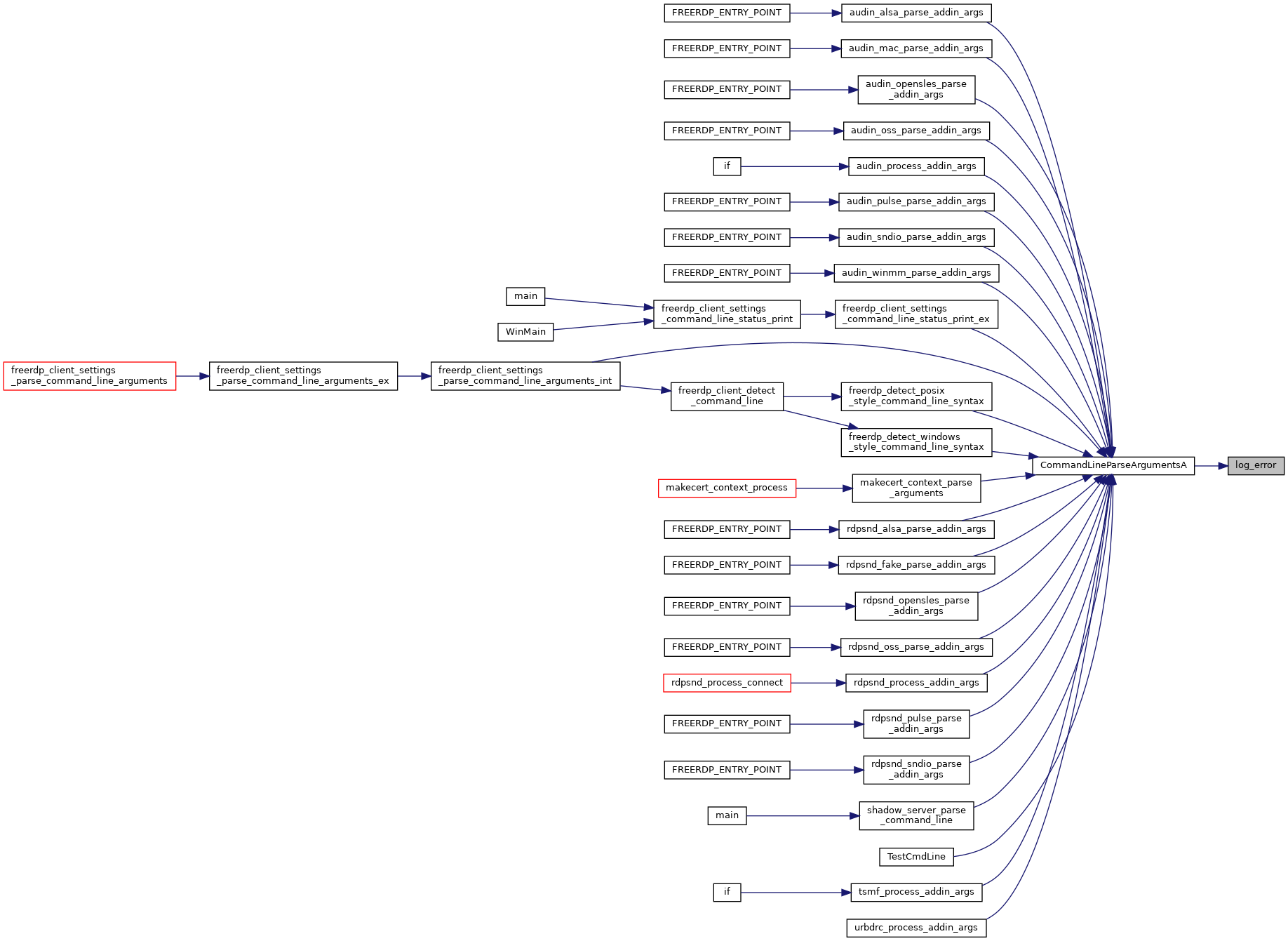#include <winpr/config.h>#include <winpr/crt.h>#include <winpr/assert.h>#include <winpr/cmdline.h>#include "../log.h"Macros | |
| #define | TAG WINPR_TAG("commandline") |
Macro Definition Documentation
◆ TAG
| #define TAG WINPR_TAG("commandline") |
WinPR: Windows Portable Runtime Command-Line Utils
Copyright 2012 Marc-Andre Moreau marcandre.moreau@gmail.com
Licensed under the Apache License, Version 2.0 (the "License"); you may not use this file except in compliance with the License. You may obtain a copy of the License at
http://www.apache.org/licenses/LICENSE-2.0
Unless required by applicable law or agreed to in writing, software distributed under the License is distributed on an "AS IS" BASIS, WITHOUT WARRANTIES OR CONDITIONS OF ANY KIND, either express or implied. See the License for the specific language governing permissions and limitations under the License.
Function Documentation
◆ CommandLineClearArgumentsA()
| int CommandLineClearArgumentsA | ( | COMMAND_LINE_ARGUMENT_A * | options | ) |

◆ CommandLineClearArgumentsW()
| int CommandLineClearArgumentsW | ( | COMMAND_LINE_ARGUMENT_W * | options | ) |
◆ CommandLineFindArgumentA()
| const COMMAND_LINE_ARGUMENT_A* CommandLineFindArgumentA | ( | const COMMAND_LINE_ARGUMENT_A * | options, |
| LPCSTR | Name | ||
| ) |

◆ CommandLineFindArgumentW()
| const COMMAND_LINE_ARGUMENT_W* CommandLineFindArgumentW | ( | const COMMAND_LINE_ARGUMENT_W * | options, |
| LPCWSTR | Name | ||
| ) |

◆ CommandLineFindNextArgumentA()
| const COMMAND_LINE_ARGUMENT_A* CommandLineFindNextArgumentA | ( | const COMMAND_LINE_ARGUMENT_A * | argument | ) |
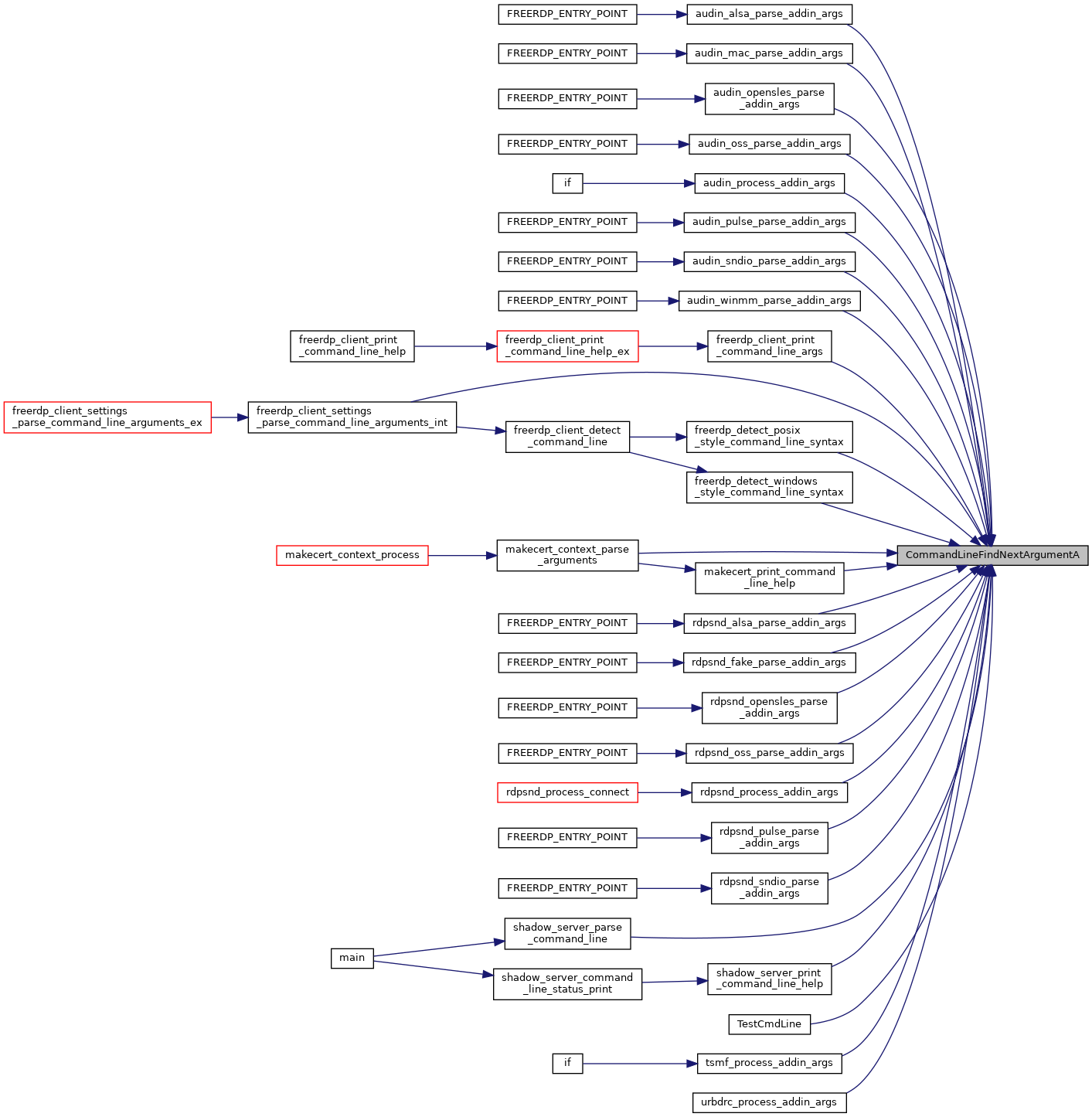
◆ CommandLineParseArgumentsA()
| int CommandLineParseArgumentsA | ( | int | argc, |
| LPSTR * | argv, | ||
| COMMAND_LINE_ARGUMENT_A * | options, | ||
| DWORD | flags, | ||
| void * | context, | ||
| COMMAND_LINE_PRE_FILTER_FN_A | preFilter, | ||
| COMMAND_LINE_POST_FILTER_FN_A | postFilter | ||
| ) |

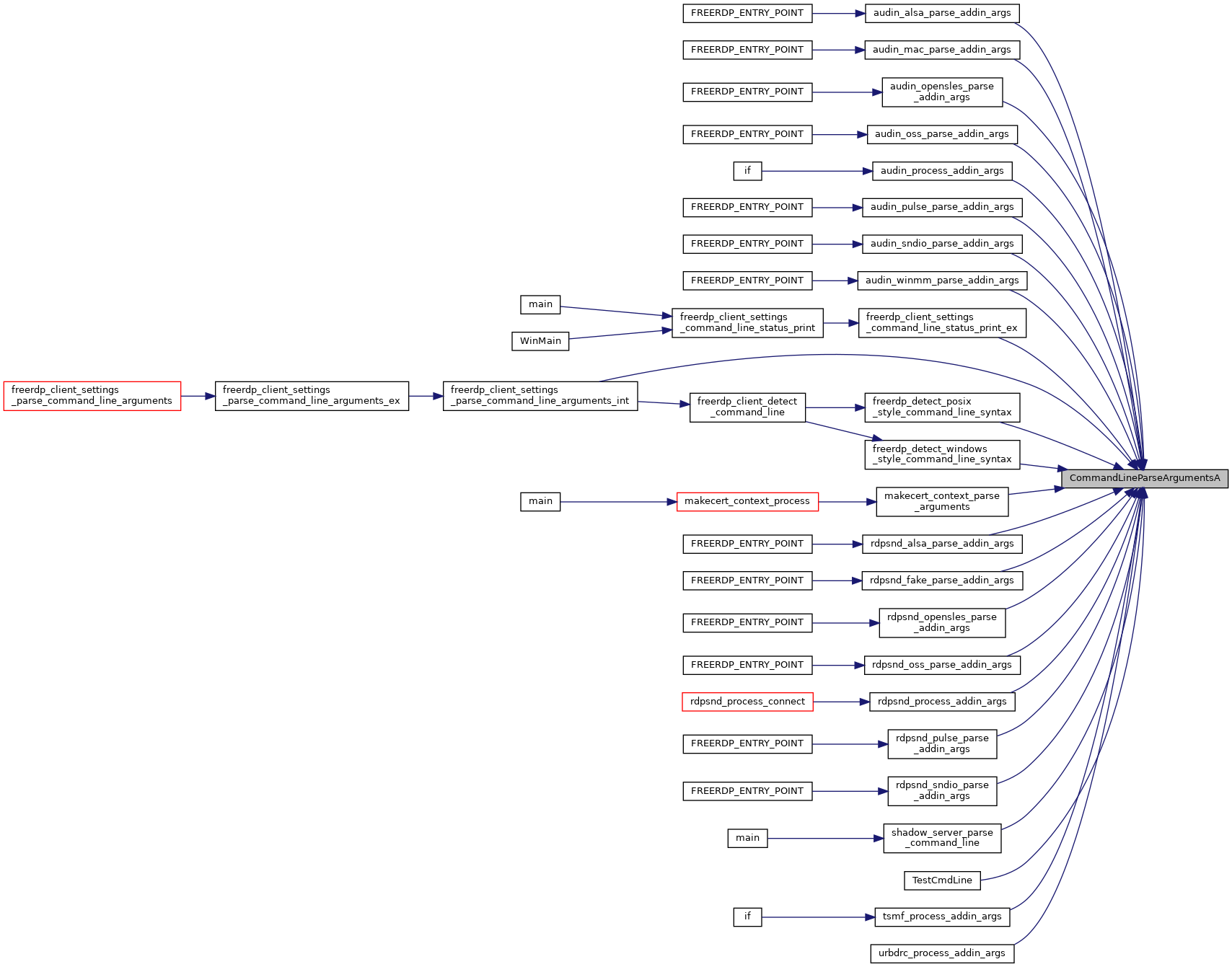
◆ CommandLineParseArgumentsW()
| int CommandLineParseArgumentsW | ( | int | argc, |
| LPWSTR * | argv, | ||
| COMMAND_LINE_ARGUMENT_W * | options, | ||
| DWORD | flags, | ||
| void * | context, | ||
| COMMAND_LINE_PRE_FILTER_FN_W | preFilter, | ||
| COMMAND_LINE_POST_FILTER_FN_W | postFilter | ||
| ) |
◆ CommandLineParseCommaSeparatedValues()
| char** CommandLineParseCommaSeparatedValues | ( | const char * | list, |
| size_t * | count | ||
| ) |
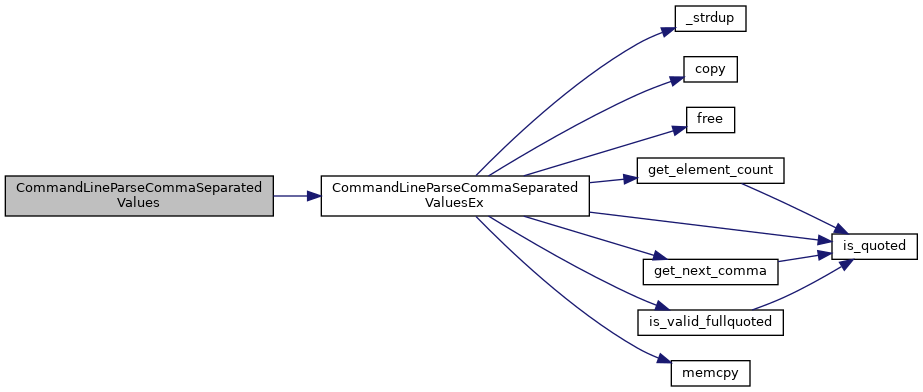
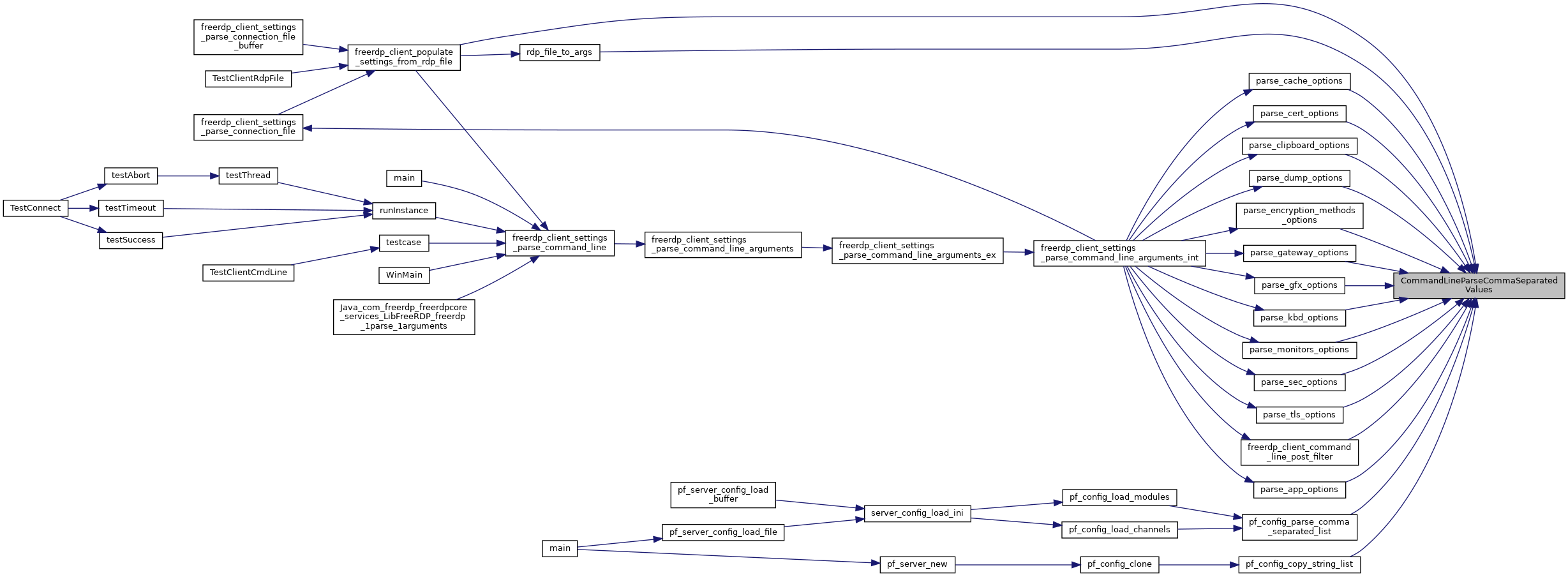
◆ CommandLineParseCommaSeparatedValuesEx()
| char** CommandLineParseCommaSeparatedValuesEx | ( | const char * | name, |
| const char * | list, | ||
| size_t * | count | ||
| ) |
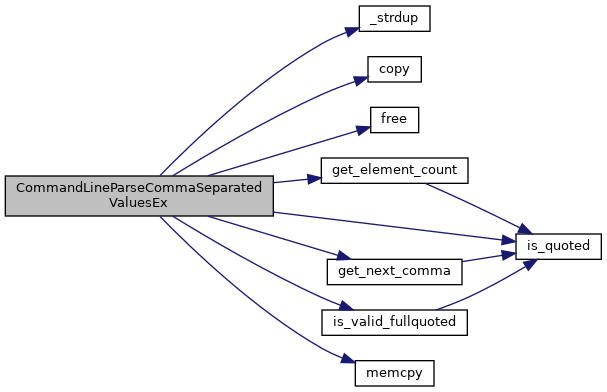
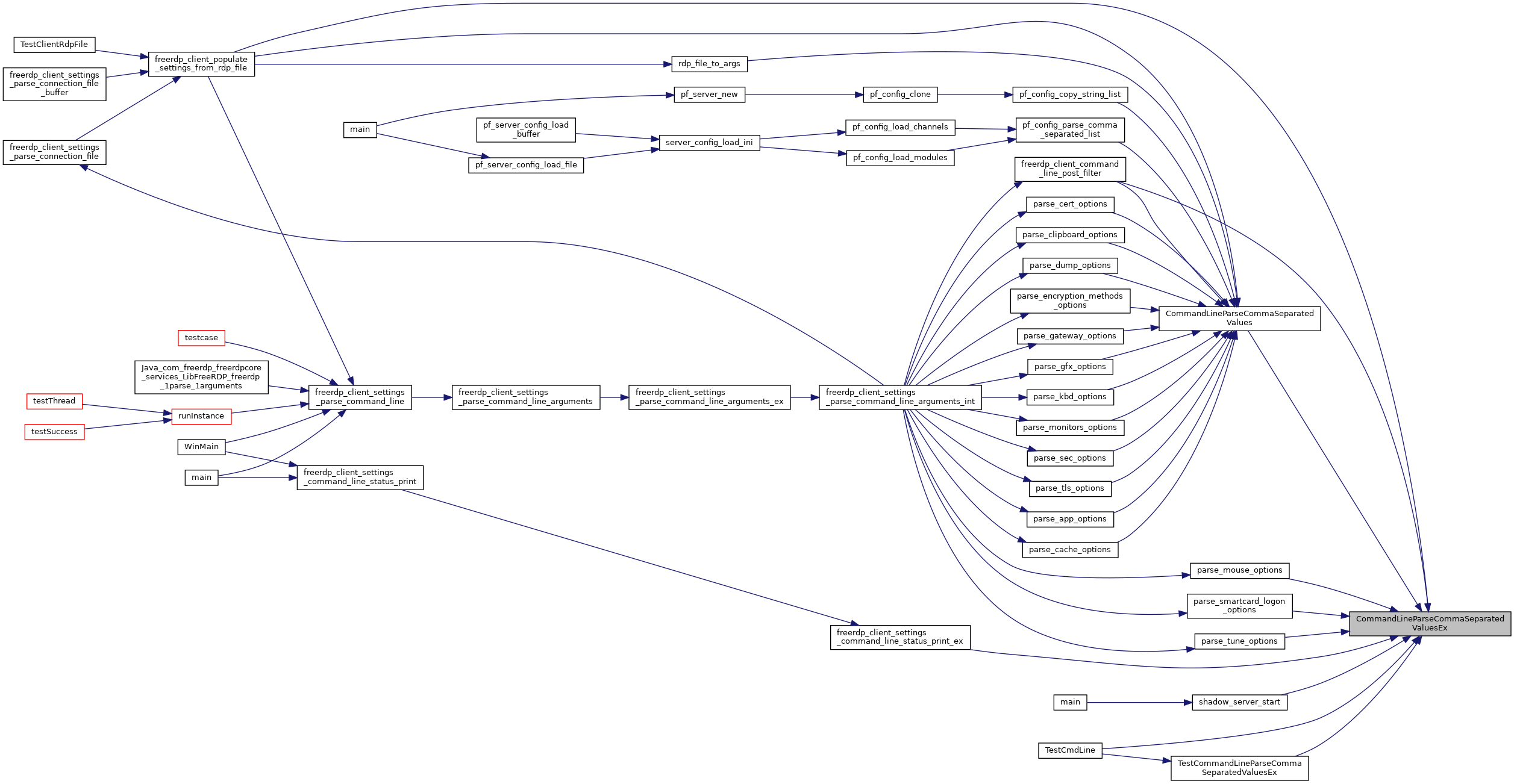
◆ CommandLineToCommaSeparatedValues()
| char* CommandLineToCommaSeparatedValues | ( | int | argc, |
| char * | argv[] | ||
| ) |


◆ CommandLineToCommaSeparatedValuesEx()
| char* CommandLineToCommaSeparatedValuesEx | ( | int | argc, |
| char * | argv[], | ||
| const char * | filters[], | ||
| size_t | number | ||
| ) |


◆ filtered()
|
static |


◆ get_element_count()
|
static |

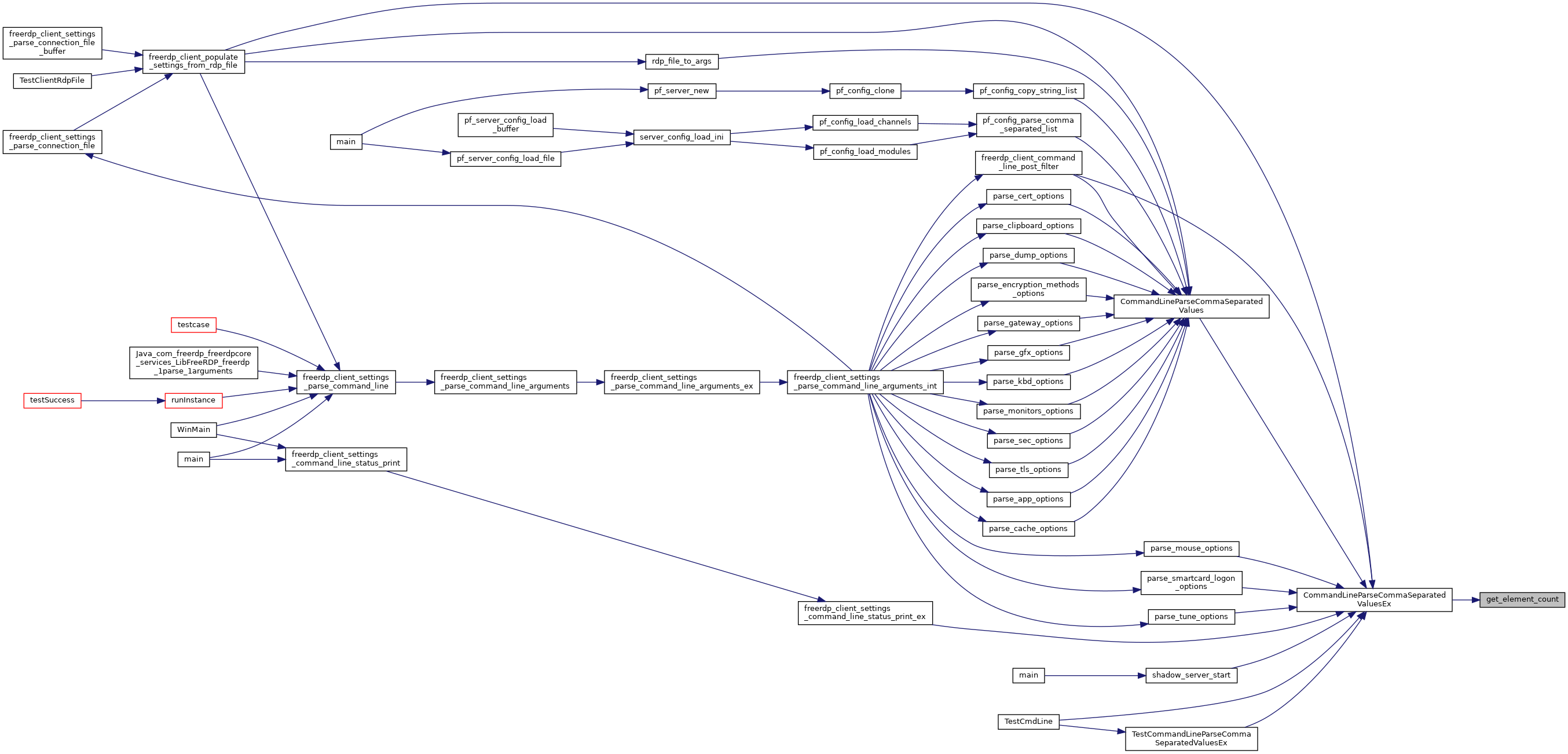
◆ get_next_comma()
|
static |

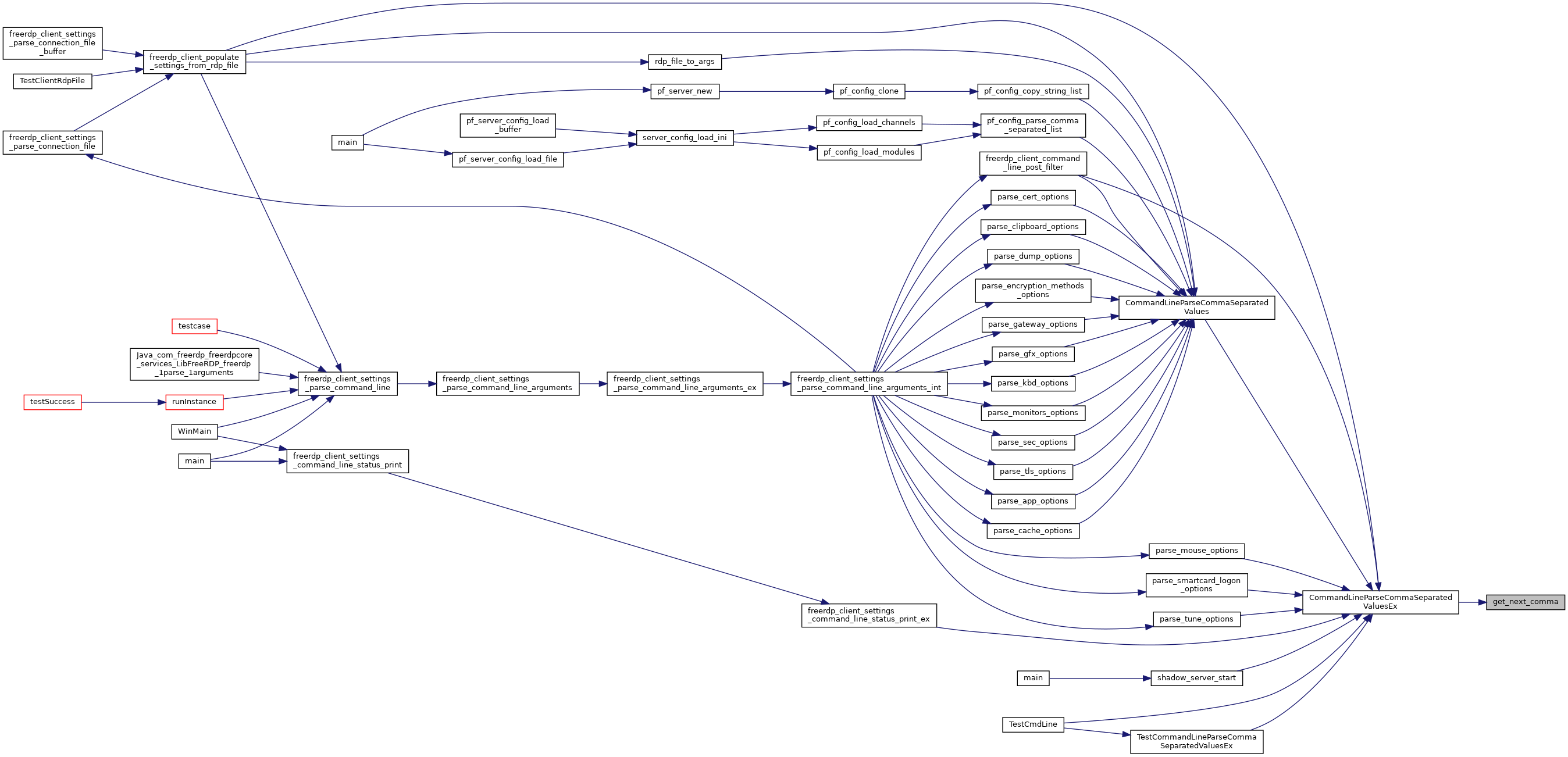
◆ is_quoted()
|
static |
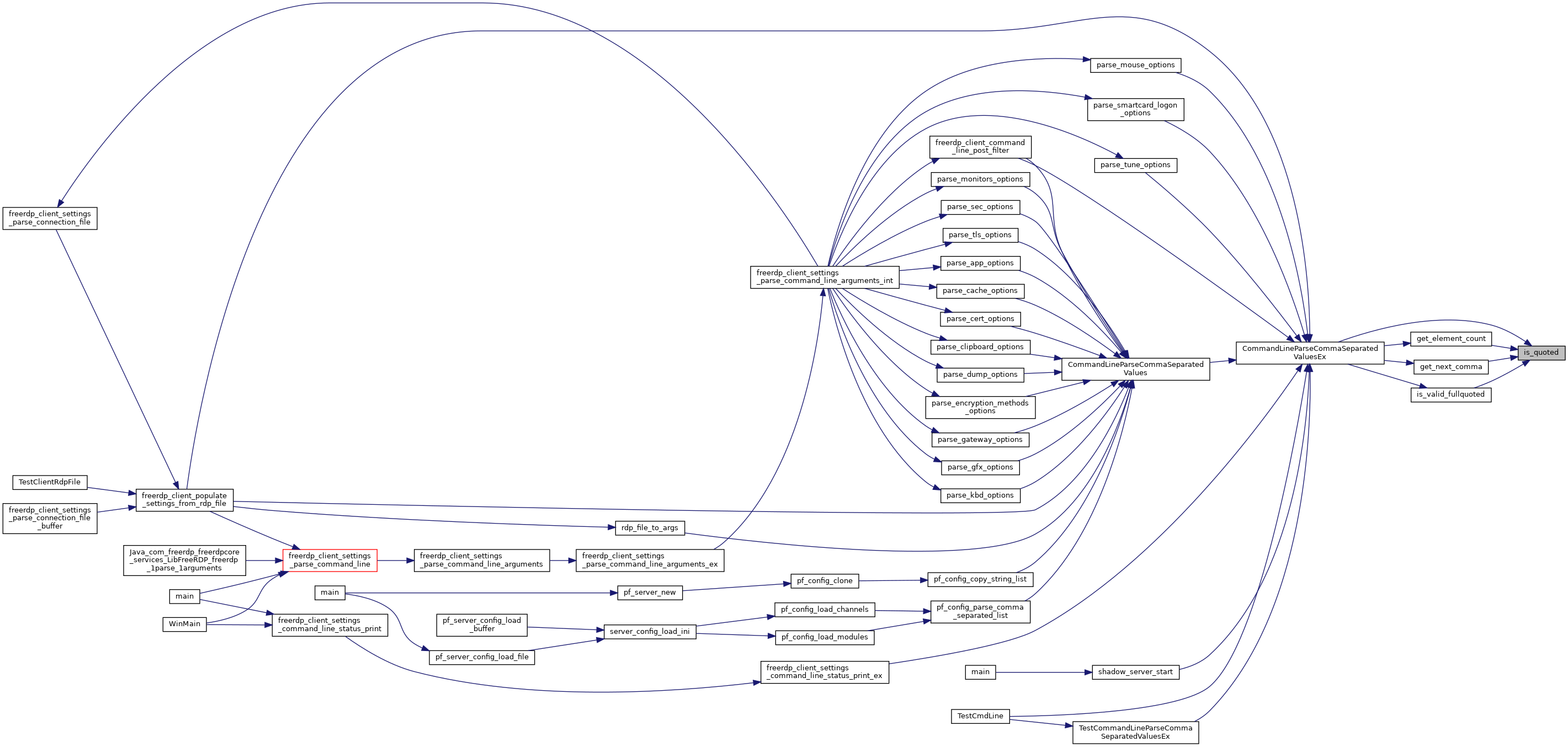
◆ is_valid_fullquoted()
|
static |

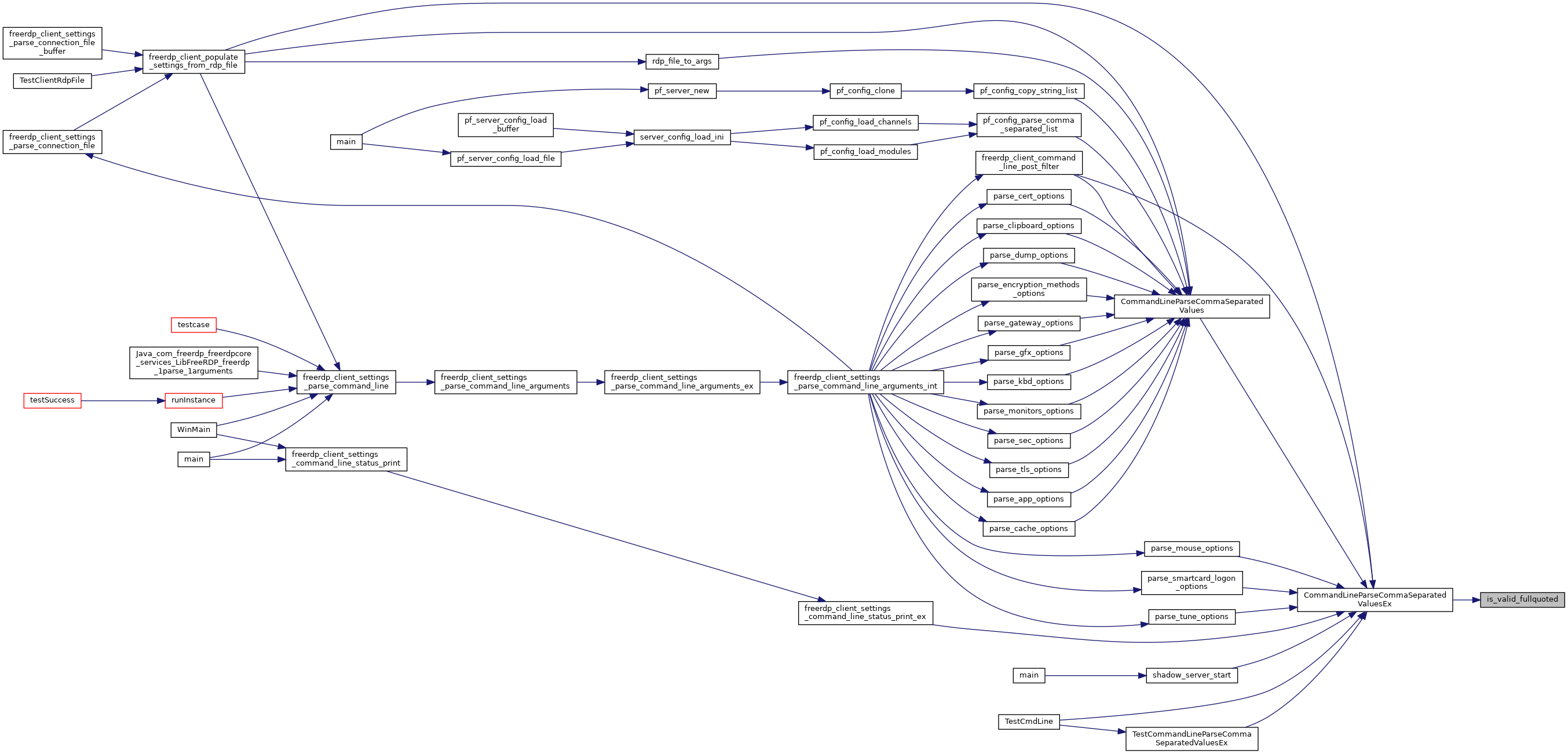
◆ log_error()
|
static |
Command-line syntax: some basic concepts: https://pythonconquerstheuniverse.wordpress.com/2010/07/25/command-line-syntax-some-basic-concepts/ Command-Line Syntax:
<sigil><keyword><separator>
<sigil>: '/' or '-' or ('+' | '-')
<keyword>: option, named argument, flag
<separator>: ':' or '='
: argument value
